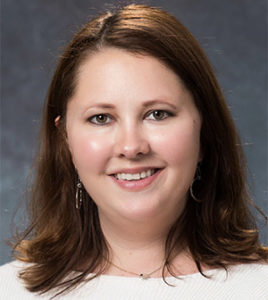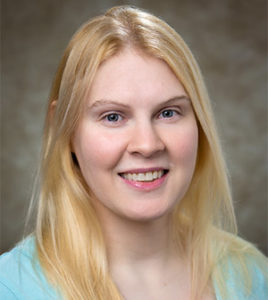Two Mercer University School of Medicine professors are working to provide information, resources and support for autism care to rural Georgia communities through a two-part, grant-funded project. Dr. Sarah Rotschafer, assistant professor of neuroscience on the Savannah campus, and Anna Krampl, associate library professor and assistant director of the Macon campus Skelton Medical Library, recently launched the online Autism Toolkit and are working on a five-part video series that will be shared with health care providers.
The project is funded by a three-year, $425,000 grant awarded by the National Institutes of Health’s National Library of Medicine in August 2022.

In working with the Georgia Rural Health Innovation Center (GRHIC) and drawing on her own experiences living in rural areas, Dr. Rotschafer decided she wanted to initiate a public health project that would bring more awareness to autism care. So, she created a simple webpage for GRHIC with information and a resource map. That webpage received more attention than she anticipated, leading her to apply for the National Library of Medicine grant that would support the creation of a more substantial online toolkit.
People across Georgia are underserved in regard to autism resources and information, and the gap is even larger in rural areas, Dr. Rotschafer said. In addition, online searches about autism can quickly lead people down a rabbit hole of misinformation.
“Over the last 20-30 years, there have been a lot of national organizations geared at increasing autism awareness throughout the country,” Dr. Rotschafer said. “But they tend to focus on cities, and that means a lot of rural people are left out of the conversation. We wanted to give some good, solid information about autism to people living in rural areas.”

The Autism Toolkit, which launched in March, presents information from authoritative sources, such as the National Library of Medicine and Centers for Disease Control and Prevention. A number of its pages were translated into Spanish by Associate Professor of Spanish Dr. Jose Pino and his students, so more communities can be reached, Krampl said.
The website, designed by M&R Marketing and managed by Hughes Media, includes information on understanding autism, finding treatment, and providing care for individuals with autism. In addition to essential services, the toolkit includes resources to help with daily challenges. For instance, the website addresses respite day services for caregivers, autism-friendly dentists and health care providers, and Individualized Education Program plans for school-age children.
More than 60 articles have already been written for the site, and new content will be added on a regular basis, Dr. Rotschafer said. People can filter the information according to who they are — a person with autism, a caregiver or a community member — or by age — infant to child, older child to young adult, or adult and senior.
The Autism Toolkit also features a map of resources by location and an events calendar. There are more autism-related events happening in communities than one might think, but they usually aren’t advertised well. The toolkit provides a platform to list events across the state and give them the attention they deserve, Dr. Rotschafer said.
“We’re really looking for members of rural communities to engage with the website and to tell us about these events that we may not know of,” Krampl said. “We’re really hoping for a lot of community engagement and feedback to go forward.”
Caregivers, community members and people with autism are also encouraged to submit questions related to their needs, ideas for new articles, and suggestions for site improvement. The goal is to help parents, caregivers and people with autism to find community and support.
“This is something that we don’t want to talk at people; we want to talk with people. We really want our users to be engaged and feel comfortable sharing what’s going on in their lives and asking us questions,” Dr. Rotschafer said.
Now that the website has launched, the pair is working to market the Autism Toolkit, so it can get into the hands of the people who need it, Krampl said. Dr. Rotschafer and Krampl have given presentations on the project at conferences, and they are establishing a social media presence and working with an advertising company to create signs and potentially billboards.
“I’d like to see the website be an accepted source for good information about autism, the first place people go to when they have a question about autism,” Dr. Rotschafer said. “As children with autism become teenagers with autism who become young adults with autism, we’d like them to come back to our webpage as a way to find new resources and new information for those different phases of life.”
The second part of the grant project focuses on reaching physicians in rural areas who might be working with people with autism. A five-part video series is in the works that will be shared with providers, so they are up-to-date on autism care.
Each episode is about 10 minutes long and presents information that is interesting, practical and digestible. The videos focus on what is autism; issues surrounding an autism diagnosis; developmental milestones and the importance of testing; testing for autism and how to find providers who test; and treatments and intervention therapies.
The series is expected to be completed in the next couple months and will be distributed through the Mercer network and beyond, Dr. Rotschafer said.










